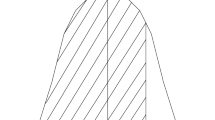Abstract
The turbo decoding is a sub-optimal decoding, i.e. it is not a maximum likelihood decoding. It is important to be aware of this fact when the parameters for the scheme are chosen. This goes especially for the selection of component codes, where the selection often has been based solely on the performance at highSnr’s. We will show that it is important to base the choice on the performance at lowSnr’s. i.e. the convergence properties, as well. Further, the study of the performance with different component codes may lead to an understanding of the convergence process in the turbo decoder.
Résumé
Le turbo décodage est sous optimal car il n’est pas à maximum de vraisemblance. Il est important de tenir compte de ce fait pour choisir les paramètres du schéma de codage. Cela est particulièrement vrai pour le choix des codes élémentaires qui sont souvent sélectionnés en fonction de leur comportement à fort signal à bruit. L’auteur montre qu’il est aussi important de choisir ces codes en tenant compte de leurs performances à faible rapport signal à bruit. De plus, l’étude des performances des turbo codes avec différents codes élémentaires peut conduire à une meilleure compréhension du processus de convergence du turbo décodeur.
Similar content being viewed by others
References
Berrou (C.), Glavieux (A.), Thitimajshima (P.). Near Shannon limit error-correcting coding and decoding: turbo codes (1).Proc. ICC '93, pp. 1064–1070, (May 1993).
McEliece (R. J.), Rodemich (E. R.). Cheng (J.-F.). The turbo decision algorithm, presented atthe 33 rd Allerton Conference on Communication, Control and Computing, (October 1995).
Benedetto (S.), Montorsi (G.). Average performance of parallel concatenated block codes.Electronics Letters,31, no 3, (February 1995).
Andersen (J. D.). Turbo codes extended with outerBch code,Electronics Letters,32, no22, (October 1996).
Andersen (J. D.), Zyablov (V. V.). InterIeaver design for turbo codes,Proceedings Int. Symp. on Turbo Codes, Brest, (September 1997).
Andersen (J. D.). Selection of code and interleaver for turbo coding,Proceedings of First ESA Workshop on Tracking, Telemetry and Command Systems, ESTEC, (June 1998).
Benedetto (S.), Montorsi (G.). The use of turbo codes for satellite operations. Final Report, ESA Contract 11915/96/D/DK, (November 1997).
Benedetto (S.), Montorsi (G.). Design of parallel concatenated convolutional codes,IEEE Transactions on Communications,44, no5, (May 1996).
Hagenauer (J.), Offer (E.), Papke (L.). Iterative decoding of binary block and convolutional codes,IEEE Trans, on Information Theory,42, no 2, pp. 429–445, (March 1996).
Author information
Authors and Affiliations
Rights and permissions
About this article
Cite this article
Andersen, J.D. Selection of component codes for turbo coding based on convergence properties. Ann. Télécommun. 54, 208–213 (1999). https://doi.org/10.1007/BF02998581
Received:
Issue Date:
DOI: https://doi.org/10.1007/BF02998581




